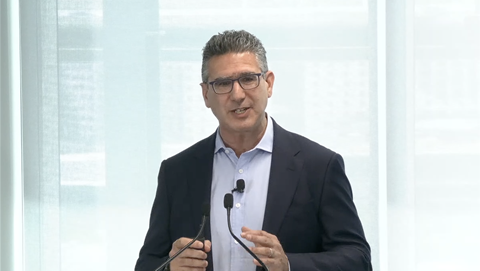When it comes to the use of AI in recruitment, users fall into two categories: cautious or converted according to a new Diversity Council Australia and Monash University report.

The report which is based on a research program that is in the second of its third year, is titled Inclusive Artificial Intelligence (AI) at Work in Recruitment. It found that employer implementation of AI is in early stages, with one in three Australian organisations reporting that they used it recently.
Getting a sense of how often applicants have experienced AI in recruitment is difficult, as applicants are often not aware that AI is being used.
The research also found that experiences with, and attitudes about, AI-supported recruitment fell very clearly into one of two camps, the converted or the cautious.
The cautious were less likely to have experienced AI in recruitment and more likely to have no or only poor knowledge in the area.
Recruiters are more likely to be converted, Lisa Annese, CEO at DCA said that 50 percent of recruiters are converted, 25 percent are cautious, the remainder are fence sitters, while applicants are split evenly, 33 percent cautious, 33 percent converted and 33 percent on the fence.
That's one way of putting it.
Alternatively, 'the cautious' might have a point. AI has a potted history in recruitment due to problems with biased data sets - Amazon famously had to abandon a project in the middle of the last decade as its hiring algorithm had a serious woman-problem.
And as Reuters, reported in 2018, "Gender bias was not the only issue. Problems with the data that underpinned the models’ judgments meant that unqualified candidates were often recommended for all manner of jobs, the people said. With the technology returning results almost at random, Amazon shut down the project, they said."
This current report appears to be supported by tech vendors such as Livehire and Predictivehire as well as Hudson RPO - which says it provides recruitment process outsourcing to its customer and which blogged about the study back in March. All three, arguably, might bring their own preconceived heuristics to a project about AI and recruitment.
In fairness to the Monash Uni and Diversity Council researchers, their report does note concerns about bias in AI.
Annese told Digital Nation Australia over time, AI tools will only become more and more available and embedded in all stages of recruitment.
She said, “The key to seeing which ‘camp’ dominates probably depends on whether vendors are proactive with ensuring their AI tools are bias free and accessible for all; and employers do their due diligence in choosing to use only AI tools that are bias free and accessible for all and being transparent about how they have done this.”
While the research doesn’t look directly at people swapping between cautious and converted but Annese said it makes sense that they could.
She explained, “If you think about on-line applications and testing, someone may find the initial online application great because it’s so flexible in terms of where and when they do it.
“But then when they get to doing the online cognitive or psychometric tests, they may realise this works against them as the tests are only in English which is not their first language.”
Skeptics vs the gimlet-eyed
The report's authors say that those in the cautious category believed AI tools focused on efficiency at the expense of effectiveness; lack nuance in decision-making, depersonalise the candidate experience; have a negative impact on diversity and inclusion; are often inaccessible; and can amplify bias.
The 'converted' were more likely to have experienced AI in recruitment and to have great or good knowledge in the area. They believed AI tools provided flexibility for all parties; help cast a wider sourcing net; could eliminate bias in recruitment; and can be more objective, consistent, and predictable than people.
The report also highlighted that Aboriginal and/or Torres Strait Islander applicants and white job applicants are more likely to be cautious, while Asian and black job applicants are more likely to be converted.
Annese said this project comes amidst the unprecedented level of global activity and investment in AI occurring within Australia and globally.
“AI is reshaping all our business activities, and talent acquisition is no exception,” she said.
“The divide between the cautious and converted in this report shows that we need to do more to educate employers about the promises and pitfalls of AI-based recruitment and selection technologies for workplace diversity and inclusion.”
Professor Andreas Leibbrandt at Monash University noted that some employers are cautious about the use of AI in recruitment and some are converted and enthusiastic.
He said, “All employers need to consider what they are using, why they are using it and measure the impacts.”



.png&h=140&w=231&c=1&s=0)
_(28).jpg&h=140&w=231&c=1&s=0)






 iTnews Benchmark Awards 2026
iTnews Benchmark Awards 2026
 iTnews Executive Retreat - Security Leaders Edition
iTnews Executive Retreat - Security Leaders Edition
 iTnews Cloud Covered Breakfast Summit
iTnews Cloud Covered Breakfast Summit
 The 2026 iAwards
The 2026 iAwards












_(1).jpg&h=140&w=231&c=1&s=0)



